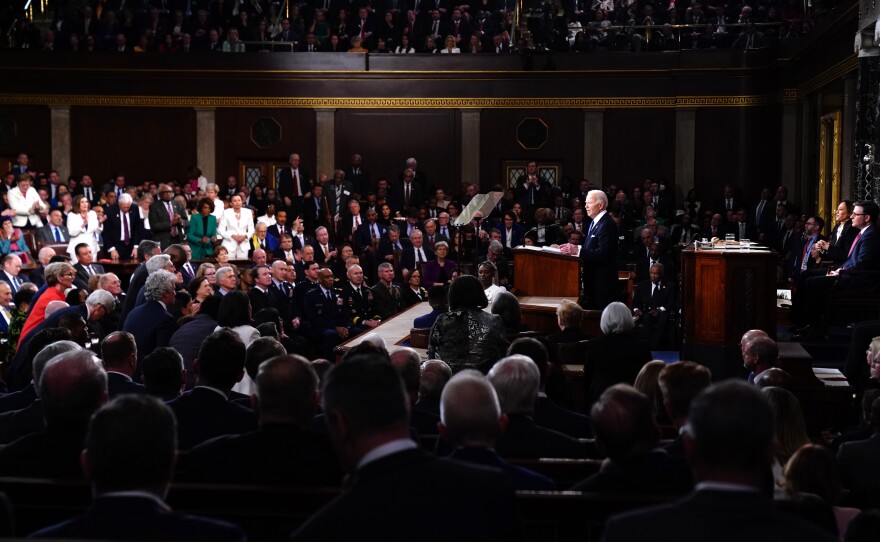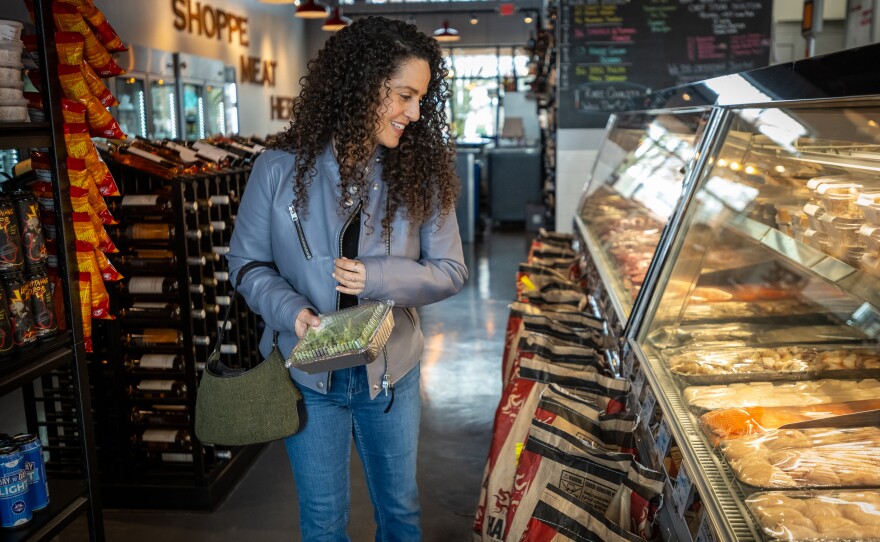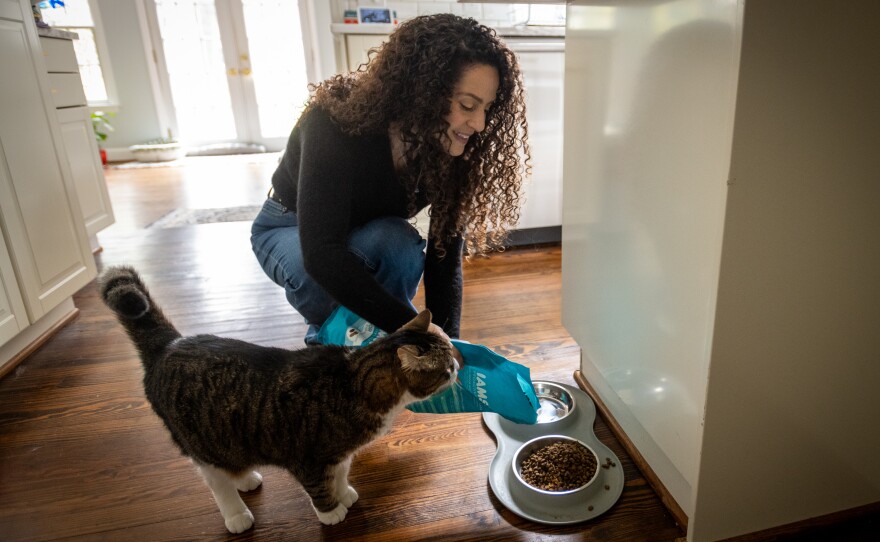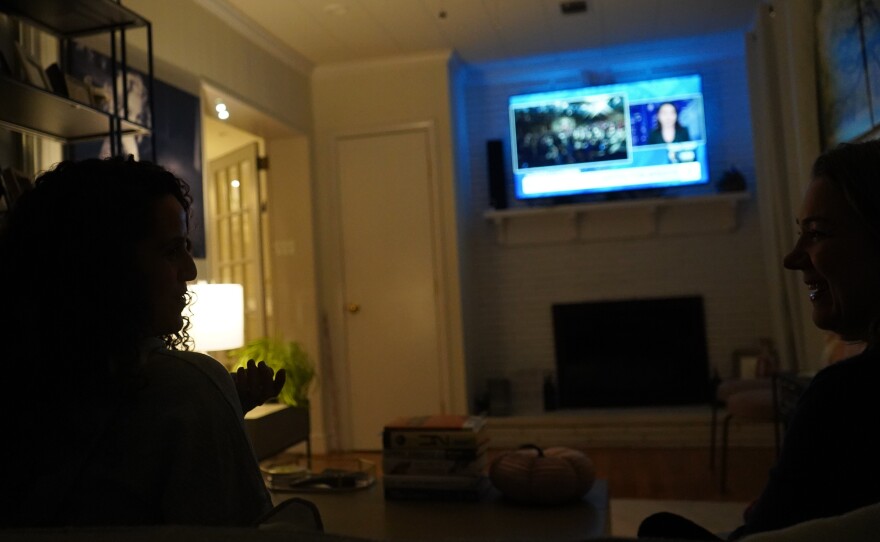CHARLOTTE, N.C. — Karen Seagraves, 52, is the kind of independent voter President Biden's campaign hopes to win over this election year.
Like many American voters, she has been less than enthusiastic about the rematch between Biden and the presumptive Republican nominee, former President Donald Trump.
"I wish I could take bits and pieces, from their track records and put them together and add a few ingredients and make the perfect president," she told NPR.
She tries to watch the State of the Union every year, usually with popcorn and wine. This time she watched it with an eye to how she'll vote in November.
But at the end of the evening, she was still very much undecided.
"I wanted to say that I could have come away from this saying: 'I'm ready to vote for this guy for president,'" Seagraves said.
"But what I feel like I took away from it is that I feel the same way that I did before: that he's really just a nice guy."

This demographic of voters is a wildcard for 2024
Recent polling commissioned by the AARP found that women aged 50 and up are the biggest wildcard in this election. They are, as a group, reliable voters, who are more politically moderate and less partisan than many other voting blocs.
While Seagraves is just one voter — not a representative sample of the electorate — her experience shows that Biden's campaign has a lot of work to do.
Seagraves is a nurse by training, who now works as a consultant for hospitals and tech companies. She is a frequent voter, though in these times of political polarization, she says she's long had a rule of avoiding talking about politics, "because to me, it was a bunch of people screaming at each other on TV and I really hate conflict."

She votes based on issues, not the party or the candidate
Seagraves says she votes based on the issues she cares about, not the party or the candidates. And what she cares about is informed by her life. She has aging parents and two grandchildren; a daughter in her 20s and a son in college. Another son is an active duty officer in the Army, and he's at the start of a nine-month deployment.
"I need to know how he's going to keep my son safe," she said before Biden's address, listing off some of the things she wanted to hear about.
She worries about all her family members for different reasons, and then there's her worries about her own eventual retirement.
"Being a caregiver, having aging parents, having a daughter, having a son who's in the military," she said. "Having, you know, all the things I have to worry about going forward for myself in my future and retirement, it's just, there's a lot on the table."

Reproductive rights is a key issue
Seagraves says reproductive rights are important to her, because of her daughter. She is appalled by the recent Alabama Supreme Court decision that stopped in vitro fertilization treatments there.
So it got her attention when Biden, about 10 minutes into the speech, described how the Supreme Court decision to overturn Roe v. Wade affected the ability of women to get IVF treatments and emergency abortions.

"Wow, I'm glad he's addressing that one head on," she said, noting that even some of her Republican friends are upset about what is happening with reproductive rights. "And he's actually giving it a lot of time, which I like too."
Later, Biden talks about giving public school teachers a raise. Seagraves loved that.
"Yes! My daughter just took a job in a school district in Chattanooga and it's even less than she was making in Texas. It's really a labor of love," she said.
She liked his perspective on his age
Seagraves has seen news stories about concerns about Biden's age. Generally, she said she thinks those concerns are overblown. She said she really liked the end of his speech, where he said his age gives him perspective.
"My lifetime has taught me to embrace freedom and democracy, a future based on core values that have defined America: honesty, decency, dignity, equality, to respect everyone, to give everyone a fair shot, to give hate no safe harbor," Biden said.
"That was the best sentence of the entire speech and he was able to leverage his age in a positive way," Seagraves said.
She was hoping for more detail — and found Biden's delivery 'just — vanilla'
Compared to his usual speeches, Biden's performance was feisty. But an hour into his remarks, Seagraves said she wasn't feeling it.
"I think this entire thing has been lackluster," she said. "I can't think of a better word. Just — vanilla," she said.
While Biden touched on a lot of things Seagraves wanted to hear about, she was disappointed there wasn't more detail.
At the end of his remarks, she said she didn't have any better sense of how he plans to keep troops like her son safe. She wanted more depth, instead of a speech that just hit all the bases.
"Like sometimes you say to yourself, 'I'm never going to get that hour of my life back,' you know? I just have that feeling," she said.
Audio story produced by Jeongyoon Han
Copyright 2024 NPR. To see more, visit https://www.npr.org. 9(MDAzMjM2NDYzMDEyMzc1Njk5NjAxNzY3OQ001))







